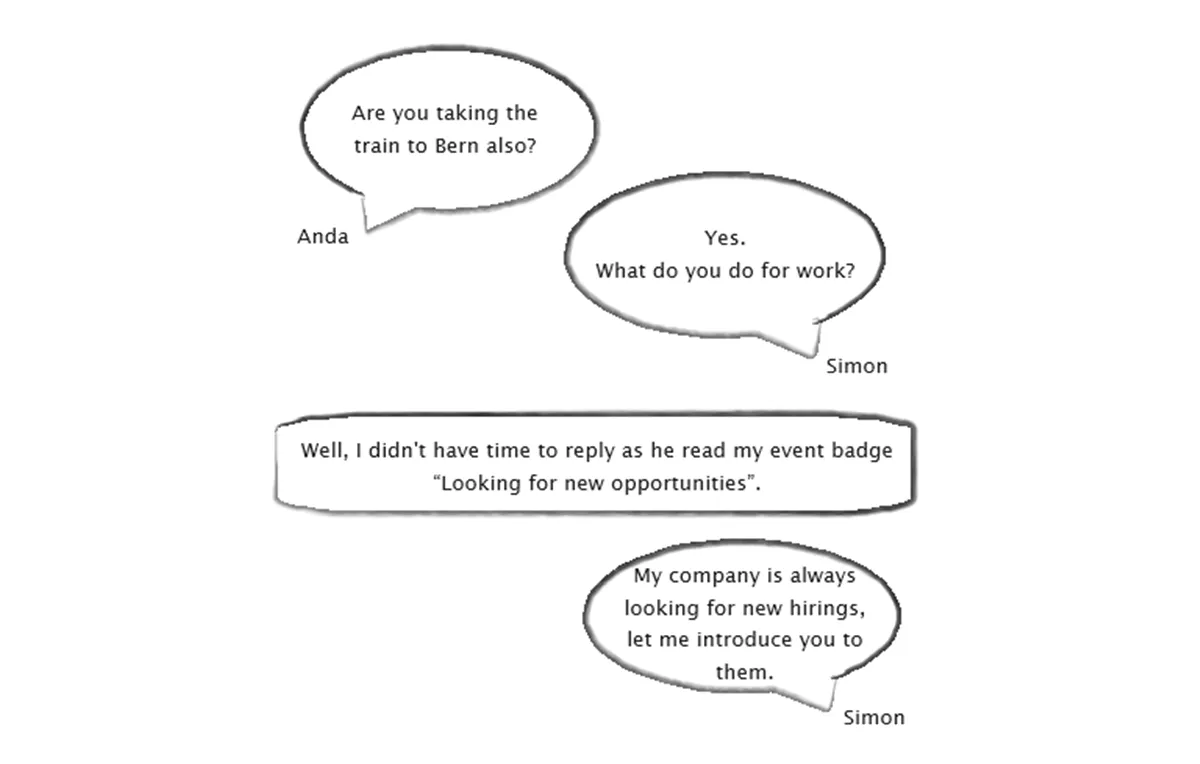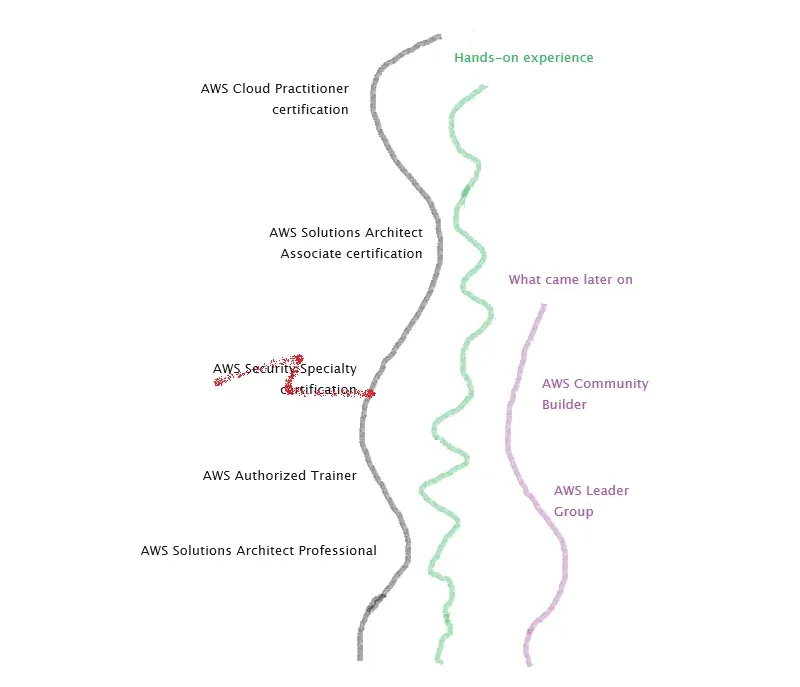From Software Engineering to AWS Cloud Consultant &Beyond
My strategy and tips to help you achieve the same based on my own experience.
"Your education is a dress rehearsal for a life that is yours to lead." - Nora Ephron

- Mentorship
- Defining my plan
- Certification
- The AWS community
- Achieving an AWS Certification: I used the “Solutions architect” certification path.
- Gaining hands-on experience: With my new job in the cloud, I had opportunities to build hands-on skills.
- Building a network: I needed to develop this skill to broaden my network.
- Becoming an AWS trainer: I was counting on receiving mentorship from my colleagues. I was lucky to have 5 AWS trainers as teammates.

- I am more the person that would prepare, prepare, prepare and never feel ready to go take that exam. I experienced it with the AWS Cloud Practitioner certification. Following around 3 weeks of preparation, I knew I had what it takes, yet there was always a “What if …?” in my head pushing me to spend more time on preparation. I came to realize that taking practice exams gives me proof that I am ready for the real exam.
- I’m a sprinter. Literally and metaphorically. I have excelled at preparing my exams last minute since always. I manage to increase my focus level under time pressure, which enables me to learn faster. This comes though with a price in energy once the exam is done.
- Review the exam guide. Each AWS certification exam has a dedicated page with useful information including resources and a link to the exam guide.
- Take an early practice exam. This allowed me to evaluate my starting point and highlighted the knowledge blanks to fill up. There are multiple practice exams available out there. As an example, here is the one I used for my AWS Solutions Architect Associate.
- Book my exam date. I knew I couldn’t go back from that moment.
- Create a training plan. This enabled me to optimize my time. I had goals to achieve each day and practice exams planned in advance in my calendar. Was I feeling confident on the second practice exam? No, no, no! But the goal was to learn at speed, not to pass the exam. There were still days when I did not train - for example, during the weekends - and that was OK! I gave myself grace! Please remember to give yourself grace too!
- Learn. Learn. Learn. Again, it depends on your learning style.
- AWS FAQs and AWS Whitepapers are a gold mine! I always go through the ones relevant to the exam. You may find the relevant ones on the exam’s dedicated page.
- Digital training. Multiple options out there such as AWS Skill Builder. I personally used my A Cloud Guru subscription. Relevant exam training is also available on the exam’s dedicated page.
- Labs or self-experimentation. AWS Workshops are great when you want to get your hands dirty! While I was short on time, I went through 1 or 2 labs on things that were completely new to me. I personally retain a lot better by doing, experiencing with the service.
- Take another practice exam. Evaluate. Based on the results, I went back to some specific services, documentation.
- Repeat practice exams and learning until I score above 75% on at least 2 different practice exams. You may read online that most people will usually advise you to aim for at least 85% on practice exams. Am I taking a high risk? I usually do much better on the exam day than on the practice exams. This is something I am personally betting on. Do what makes you feel confident. Your results for the exam are reported as a scaled score of 100–1,000. The minimum passing score is 720 for an associate certification and 750 for an AWS professional or specialty certification.
- Take the exam.
- In person training class. The sweet thing about this kind of training is that you immerse yourself with a trainer that you get to ask all your questions, you might get to experiment through labs and exchange with other participants.
- Finding a study buddy.

- AWS Summits – Alex Radu, an AWS community builder, wrote an article highlighting the benefits in attending an AWS Summit
- AWS Meetups – a local meetup might be organized just near where you live. Go check it out!
- AWS Community Day events
- AWS Experience, generally include free events and workshops, both physical and virtual, trainings, hands-on demos, and local communities.
- Cloud clubs for students
- There is a known cloud-skills gap. You may search online and find articles like this one. Why am I highlighting this? Because there is an opportunity for you to get that job that you want.
- I got my second cloud job following a new connection at another AWS event. This time I wasn’t actively looking for a job as before, but I was open to hearing about opportunities.
- Finding a mentor
- Defining your plan
- Getting yourself certified
- Networking within the industry
“Luck is where opportunity meets preparation.” Denzel Washington
